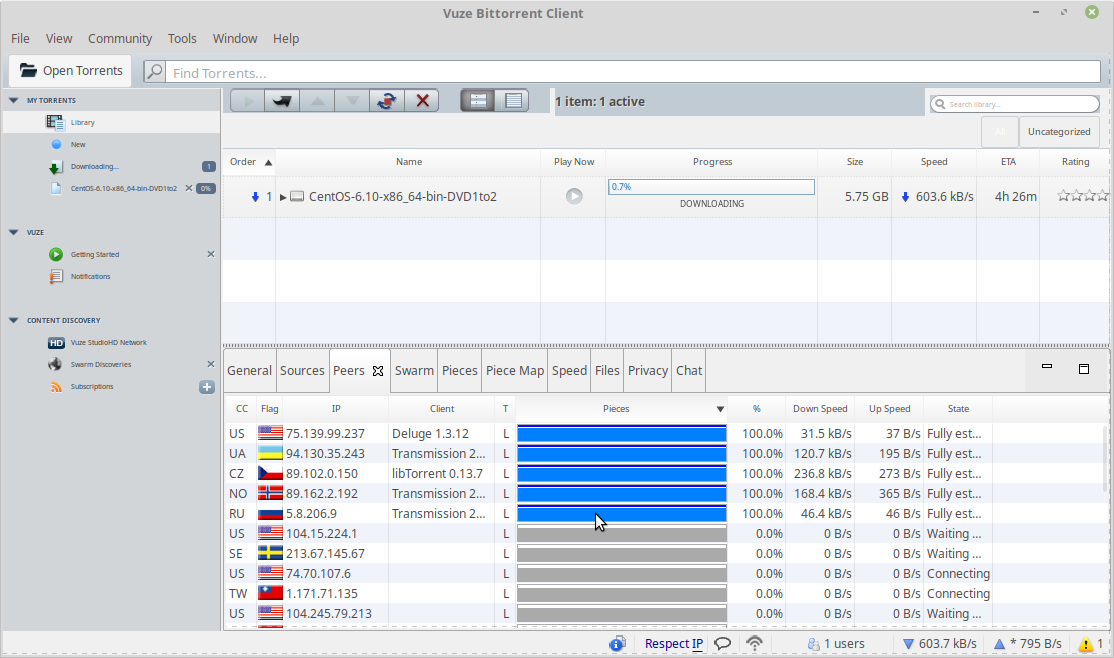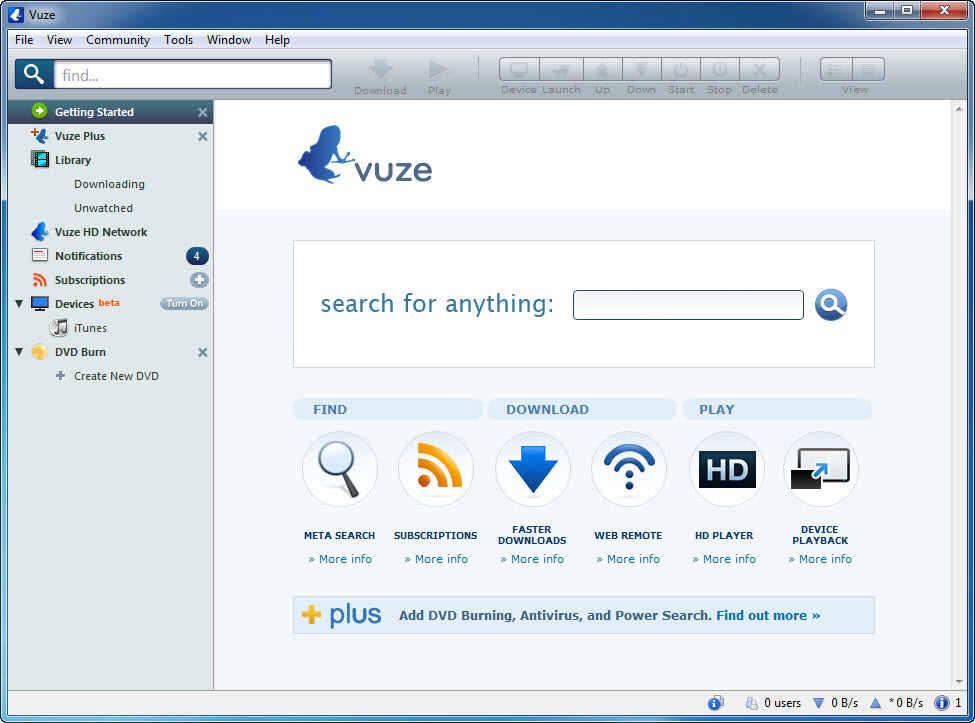
BitTorrent today launched a new BitTorrent client: uTorrent Web. Not to be confused with uTorrent (stylized as µTorrent), and despite what its name might suggest, you still have to download and install uTorrent Web.
- ΜTorrent® (uTorrent) Web torrent client for Windows - uTorrent is a browser based torrent client.
- Updated for 2020. An online torrent client lets you download torrents online, in your browser, without sharing them and without downloading a torrent program. All you need is a browser like Chrome or Firefox, and a torrent file, which you can get on any torrent website. Another benefit to most online torrent programs is that once you’ve told the website to load your torrent, you can log out.
- Sep 01, 2017.
BitTorrent commonly refers to the infamous peer-to-peer (P2P) file-sharing protocol associated with piracy. But there is also a company by the name of BitTorrent, which owns the two most popular clients for the protocol: BitTorrent and uTorrent.
UTorrent Web is the lightweight version of the popular torrent client uTorrent. The torrent downloader is currently available for Windows and comes with a limited feature set. Still, it allows.
uTorrent Web has been available in beta for years, but today the web-based torrent client is finally available as a stable version. The main difference between uTorrent Web and its counterparts is that all the downloading happens in your browser. Just like uTorrent, uTorrent Web can play audio and video files before they’ve finished downloading, but unlike uTorrent, the playback also happens inside the browser. Other file types can be downloaded as well — it’s really just like a normal BitTorrent client.
After installation, uTorrent Web will try to open torrent and magnet links automatically in a browser window. You can search for content on your regular torrent sites or use uTorrent Web’s search box, which redirects you to Google. Downloading is just as fast as you would expect, and playback is seamless — even subtitles are pulled in automatically, assuming they’re included in the torrent file.
The app’s settings are far from rudimentary. You can pick your language, your default download folder, and even whether to open each torrent in a new tab. It’s also possible to set uTorrent Web to start up when your computer boots or clear your search history, and of course you can choose uTorrent Web as your default torrent client.
The idea is that making all this possible inside the browser will make downloading torrent files easier for average internet users. At least, that’s how BitTorrent explains it:
When we first started the project, our vision was to build a torrent client with simplicity and quick playability. With a simple download to play experience as the focal point of µTorrent Web, we see more users successfully downloading and playing torrents than with any other product in BitTorrent’s history.
Despite today’s release, BitTorrent promises that the desktop version of uTorrent, which will now be referred to as uTorrent Classic, will live on: “Our long-term plan is to continue development across both products and make them available on utorrent.com.”
uTorrent Web is only available for Windows, but it will likely be ported to other operating systems if this launch is successful. In our testing, however, the experience wasn’t ideal — uTorrent Classic is still significantly simpler to install and use. But the fact that BitTorrent has managed to bring all the basic functionality into the browser is certainly a success.

In the summer of 2007, shortly after launchingNovlet,Daniele and I still had time to spare and were looking for something new to build.Sure enough, within a short period, Daniele came up with the idea that would soon become BitLet: a BitTorrent client that could run in a browser without requiring users to install anything on their computer.
Back then, browsers had very limited capabilities: AJAX had been recently introduced (in 2005), web applications were moving from static pages to dynamic client UIs but no browser could do things like opening sockets and writing files locally, central requirements for a peer to peer file sharing application.
We found a solution in an unlikely piece of technology: Java applets.Despite Java’s success as a programming language, applets had never been that popular among casual users. While a good idea in principle (small applications that could be downloaded and launched from web pages), the concept never got traction beyond a few niches.
One of the main reasons is that Java applets didn’t look that great. Given the need to run across multiple platforms (Windows, Linux, Mac), applets used their own window toolkit for rendering interfaces, which led to UIs that always looked quite different from what users were expecting most of the time.
What made BitLet possible, however, was the idea that we could have the applet implement the BitTorrent protocol while relying only on the browser for its interface.
The interface we had in mind was very simple, centered around a streamlined download window.
Web Torrent Downloader Online
We had a first version shortly after, an applet with no Java UI that would use JavaScript to communicate with the hosting browser to handle events and drive page updates.
We built a very simple website around it and published it. Within days, BitLet took off. People loved the simplicity and the ability to use BitTorrent anywhere, without needing to install any client software.One of the very first articles featuring BitLet stated:
Very useful if you want to share a torrent with your BitTorrent illiterate friends, or if you’re on a computer that doesn’t have a BitTorrent client installed.
Web-based Torrent Client
[…]
I’ve tried it with a couple of torrents and it seems to be working quite well, just enter the url of the .torrent file and you’re good to go. The download speeds are decent and doesn’t require any configuration, so it’s pretty much idiot-proof.
As user took notice, a few prominent file sharing sites did too, and embedded links to BitLet on their download pages.
We kept adding features, introduced the option to stream music and video as they were being downloaded, added UPnP support to open ports on home routers for faster transfer speeds, wrote a Chrome extension to make BitLet the default download option for torrents.
We had a great time working on this, it’s been a great side project that was also very interesting technically.
Years later, applets became less and less popular, with several browsers dropping support for the Java plugin that allowed running applets, which led Sun to officiallydeprecate the technology in 2016.
That signaled the end of an era for us: BitLet was considerably harder to use for people and the initial value of simplicity we built the applet around disappeared.
We turned off bitlet.org in 2016 and open sourced parts of the infrastructure:

Liked this?
You can sign up here to be notified of new content. Low frequency, no spam.
Posts
Bittorrent video streaming on Bitlet
